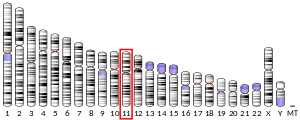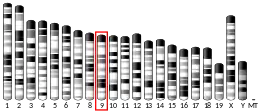| STT3A | |||||||||||||||||||||||||||||||||||||||||||||||||||
|---|---|---|---|---|---|---|---|---|---|---|---|---|---|---|---|---|---|---|---|---|---|---|---|---|---|---|---|---|---|---|---|---|---|---|---|---|---|---|---|---|---|---|---|---|---|---|---|---|---|---|---|
| Identifiers | |||||||||||||||||||||||||||||||||||||||||||||||||||
| Aliases | STT3A, ITM1, STT3-A, TMC, catalytic subunit of the oligosaccharyltransferase complex, STT3 oligosaccharyltransferase complex catalytic subunit A, CDG1WAR, CDG1WAD | ||||||||||||||||||||||||||||||||||||||||||||||||||
| External IDs | OMIM: 601134 MGI: 105124 HomoloGene: 40617 GeneCards: STT3A | ||||||||||||||||||||||||||||||||||||||||||||||||||
| |||||||||||||||||||||||||||||||||||||||||||||||||||
| |||||||||||||||||||||||||||||||||||||||||||||||||||
| |||||||||||||||||||||||||||||||||||||||||||||||||||
| |||||||||||||||||||||||||||||||||||||||||||||||||||
| |||||||||||||||||||||||||||||||||||||||||||||||||||
| Wikidata | |||||||||||||||||||||||||||||||||||||||||||||||||||
| |||||||||||||||||||||||||||||||||||||||||||||||||||
STT3A, catalytic subunit of the oligosaccharyltransferase complex is a protein that in humans is encoded by the STT3A gene. [5]
Function
The protein encoded by this gene is a catalytic subunit of the N-oligosaccharyltransferase (OST) complex, which functions in the endoplasmic reticulum to transfer glycan chains to asparagine residues of target proteins. A separate complex containing a similar catalytic subunit with an overlapping function also exists. Multiple transcript variants encoding different isoforms have been found for this gene. [provided by RefSeq, Aug 2015].
See also
References
- 1 2 3 GRCh38: Ensembl release 89: ENSG00000134910 - Ensembl, May 2017
- 1 2 3 GRCm38: Ensembl release 89: ENSMUSG00000032116 - Ensembl, May 2017
- ↑ "Human PubMed Reference:". National Center for Biotechnology Information, U.S. National Library of Medicine.
- ↑ "Mouse PubMed Reference:". National Center for Biotechnology Information, U.S. National Library of Medicine.
- ↑ "Entrez Gene: STT3A, catalytic subunit of the oligosaccharyltransferase complex". Retrieved 2018-07-12.
Further reading
- Ruiz-Canada C, Kelleher DJ, Gilmore R (January 2009). "Cotranslational and posttranslational N-glycosylation of polypeptides by distinct mammalian OST isoforms". Cell. 136 (2): 272–83. doi:10.1016/j.cell.2008.11.047. PMC 2859625. PMID 19167329.
- Patel MR, Stadler ME, Deal AM, Kim HS, Shores CG, Zanation AM (May 2011). "STT3A, C1orf24, TFF3: putative markers for characterization of follicular thyroid neoplasms from fine-needle aspirates". Laryngoscope. 121 (5): 983–9. doi:10.1002/lary.21736. PMID 21520112. S2CID 206198313.
- Sigstad E, Paus E, Bjøro T, Berner A, Grøholt KK, Jørgensen LH, Sobrinho-Simões M, Holm R, Warren DJ (April 2012). "The new molecular markers DDIT3, STT3A, ARG2 and FAM129A are not useful in diagnosing thyroid follicular tumors". Mod. Pathol. 25 (4): 537–47. doi:10.1038/modpathol.2011.188. PMC 3318159. PMID 22157935.
- Shrimal S, Ng BG, Losfeld ME, Gilmore R, Freeze HH (November 2013). "Mutations in STT3A and STT3B cause two congenital disorders of glycosylation". Hum. Mol. Genet. 22 (22): 4638–45. doi:10.1093/hmg/ddt312. PMC 3888133. PMID 23842455.
- Malaby HL, Kobertz WR (August 2014). "The middle X residue influences cotranslational N-glycosylation consensus site skipping". Biochemistry. 53 (30): 4884–93. doi:10.1021/bi500681p. PMC 4372077. PMID 25029371.
- Ghosh A, Urquhart J, Daly S, Ferguson A, Scotcher D, Morris AA, Clayton-Smith J (May 2017). "Phenotypic Heterogeneity in a Congenital Disorder of Glycosylation Caused by Mutations in STT3A" (PDF). J. Child Neurol. 32 (6): 560–565. doi:10.1177/0883073817696816. PMID 28424003. S2CID 11435676.
This article incorporates text from the United States National Library of Medicine, which is in the public domain.
This article is issued from Wikipedia. The text is licensed under Creative Commons - Attribution - Sharealike. Additional terms may apply for the media files.



